ri.pe.ti.zione is a collective project led by three flutists who share a classical music education and feel the need to question the dominance of musical repetition within the academic study of instrumental and vocal technique. Teresa Costa, Beatrice Miniaci, and Clara Blavet are three classically trained flute players who met during their studies in Amsterdam and have continued to collaborate in various interdisciplinary contexts. While their love for classical music remains a core element of their work, they also explore the potential of interdisciplinary projects to foster deeper engagement and address contemporary issues through music.
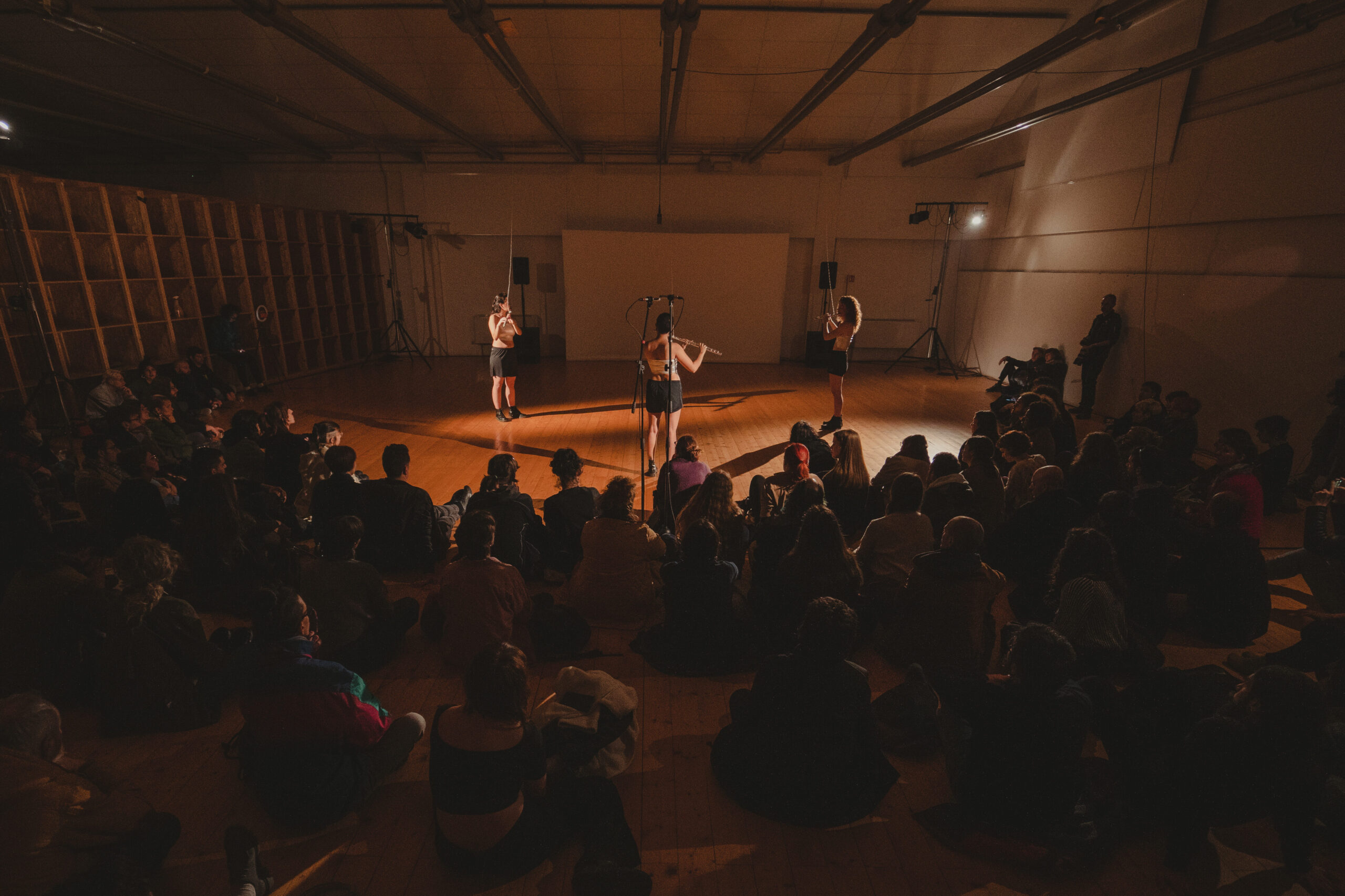
In classical music, the act of repeating passages to achieve technical mastery becomes a daily routine, almost ceremonial in its precision and discipline. This ritualistic repetition not only shapes the musician’s technical abilities but also their mental and physical relationship with the instrument, creating a profound connection between body, sound, and space.
The project delves into the deeper significance of repetition as a gesture that transcends technique, transforming into a meditative act that mirrors the structure of rituals across cultures. By repeating musical passages, often in isolation, musicians engage in a solitary ritual that cultivates focus, resilience, and dedication. In ri.pe.ti.zione, we highlight this repetitive process, deconstructing fragments of classical flute repertoire and abstracting them from their original context to explore the imperfections that naturally arise during practice.
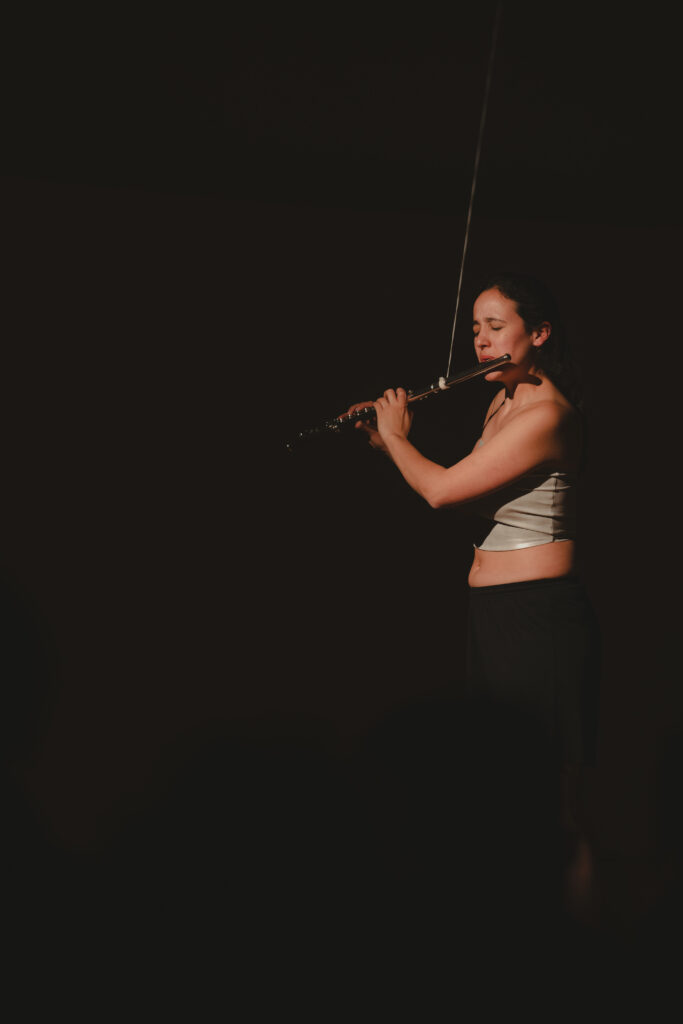
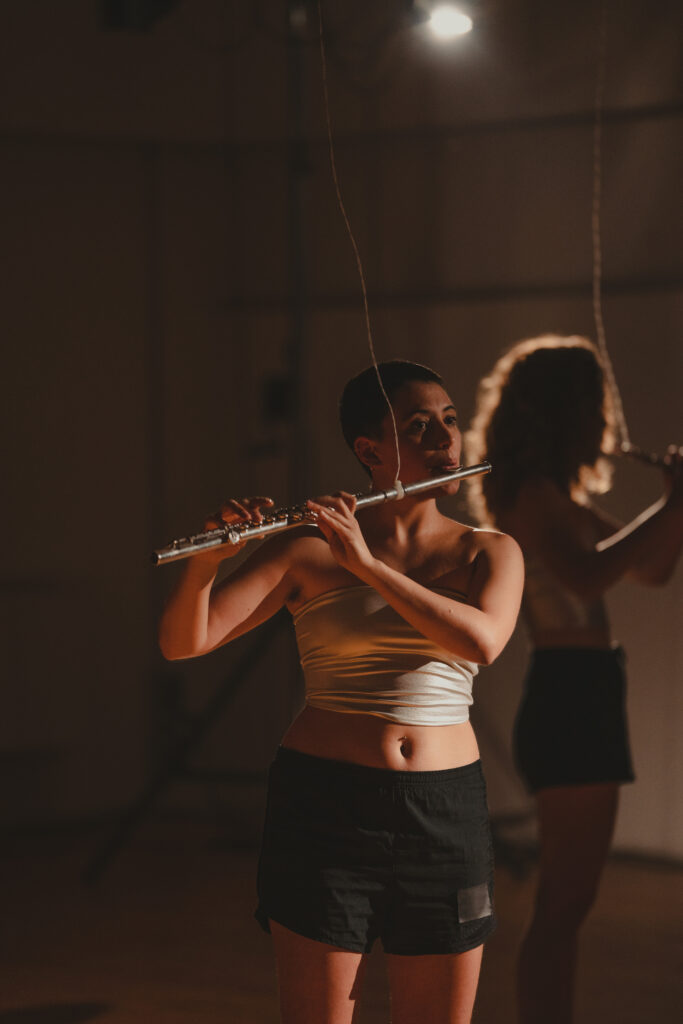

The work embraces these “errors” as key elements of performance, paralleling the unpredictable outcomes that are often part of ritualistic practices. In rituals, there is an inherent acceptance of uncertainty and imperfection, a space where the unexpected can occur and be valued. Similarly, ri.pe.ti.zione shifts the focus from flawless execution to a celebration of the human element within music-making—the small deviations that are often hidden or discarded in the pursuit of perfection.
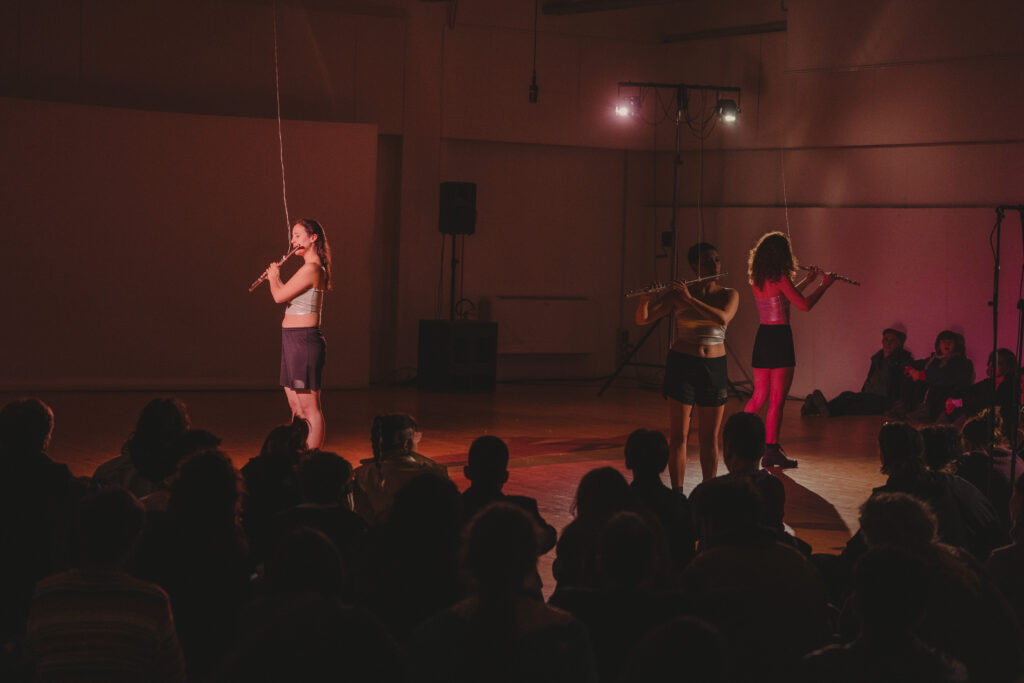
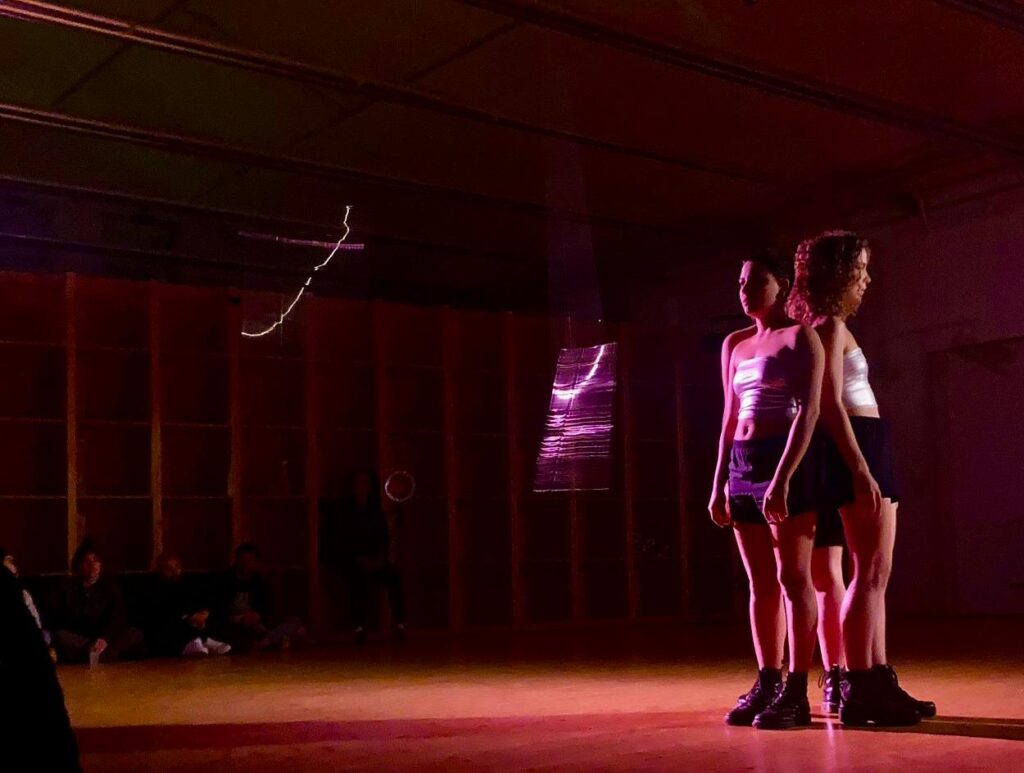
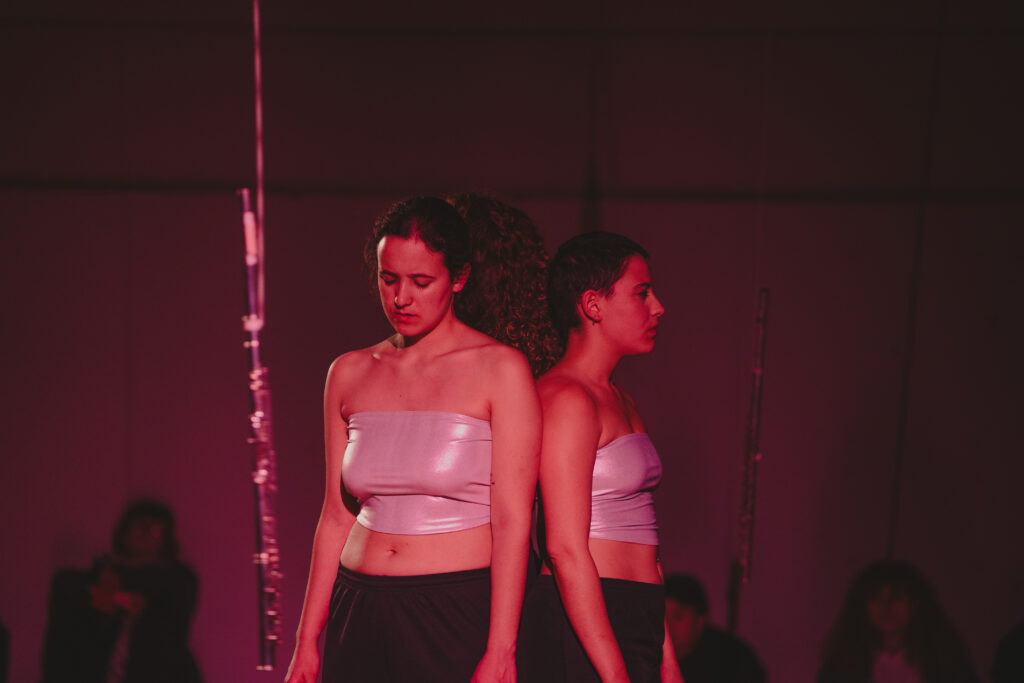
The performance emphasizes physicality, with the bodies, voices, and airflows of the musicians occupying the space in dynamic ways. Movement becomes a key element of communication, not only enhancing the musical material but also exploring the idea of choreography from the perspective of the performers.
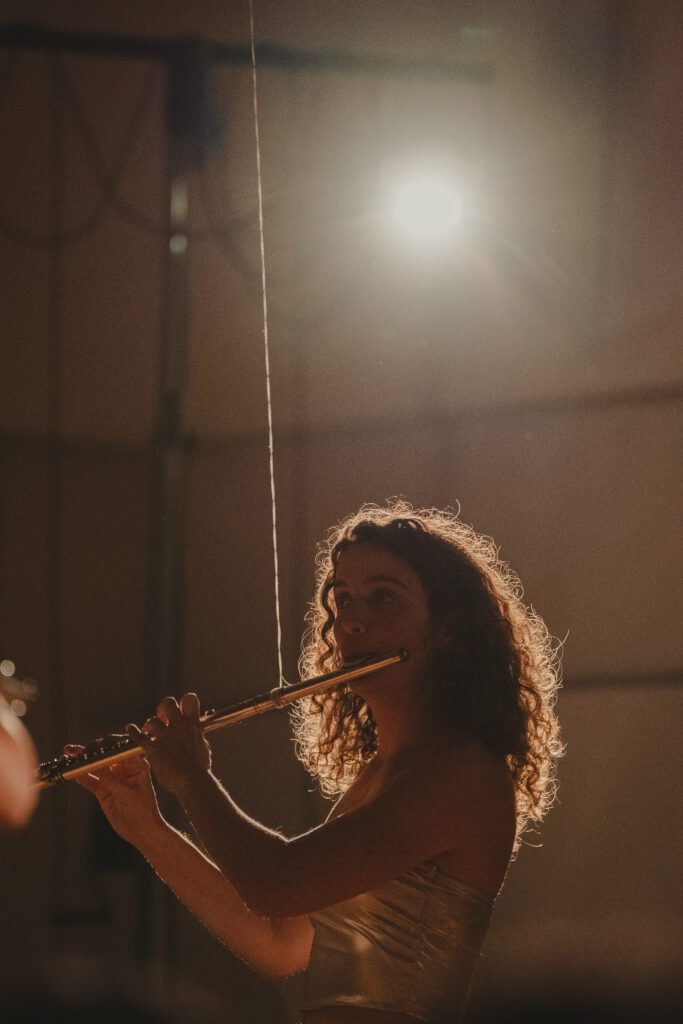
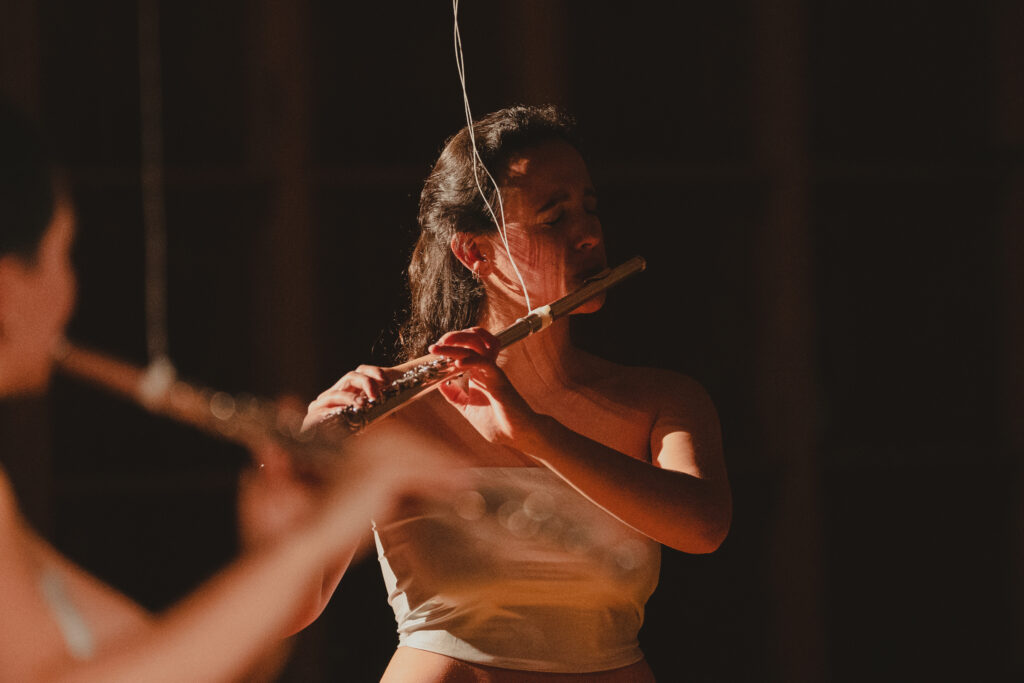
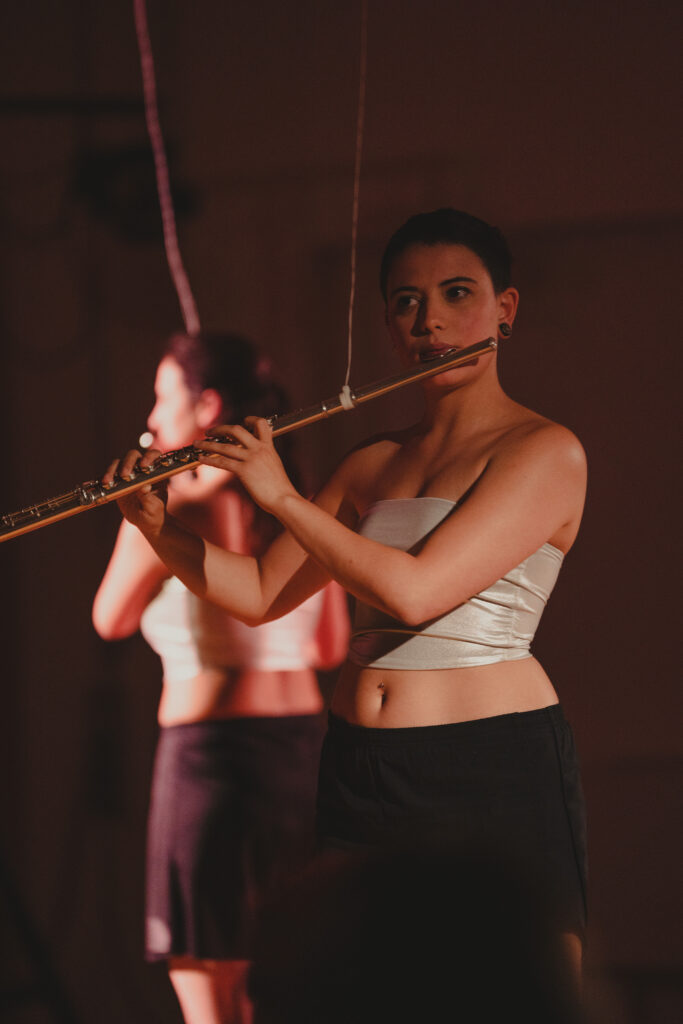
In this piece, the performers engage deeply with the psychological, gestural, and somatic realities of repetition, transforming their individual, solitary practice into an intimate exchange. The result is a performance that meditates on the possibility of error and celebrates the beauty found in imperfection.
The project was initially in residency at the collagene program in DAS Bologna (IT).
It is a show of 35 minutes for hanged flutes and three performers.